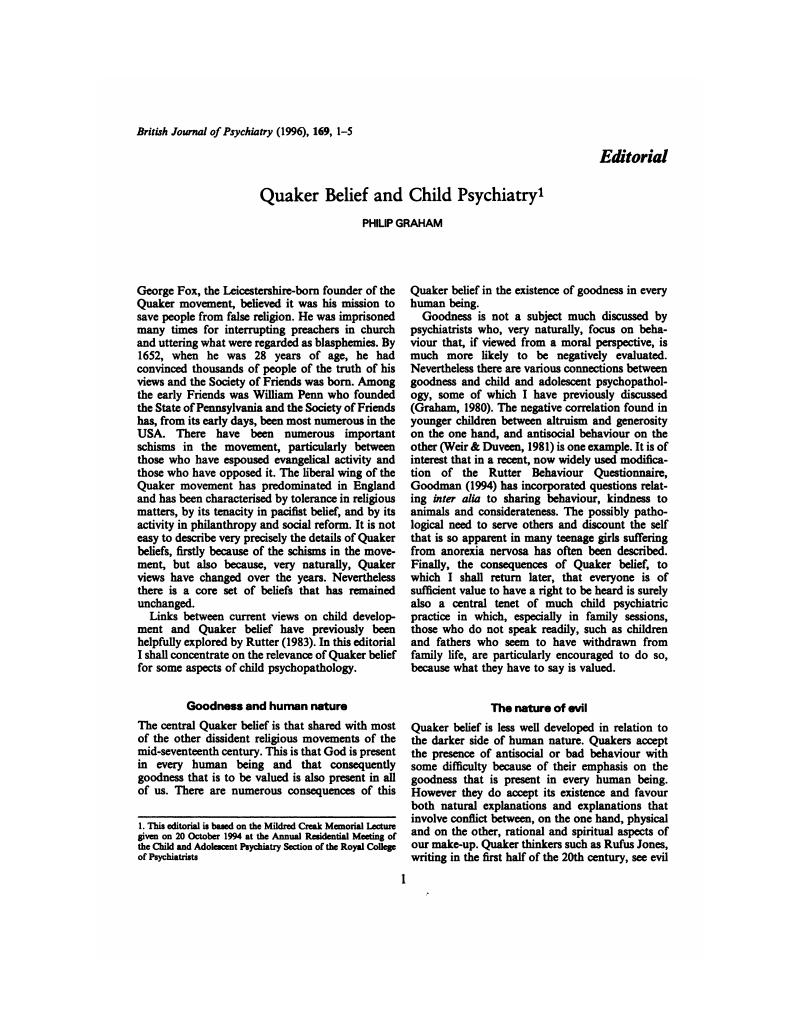Crossref Citations
This article has been cited by the following publications. This list is generated based on data provided by Crossref.
Allchin, W. H.
1996.
Quaker belief and child psychiatry.
British Journal of Psychiatry,
Vol. 169,
Issue. 4,
p.
526.
Blore, David C
1997.
Use of EMDR to treat morbid jealousy: a case study.
British Journal of Nursing,
Vol. 6,
Issue. 17,
p.
984.
McGuffin, Peter
and
Farmer, Anne
2001.
Polydiagnostic approaches to measuring and classifying psychopathology.
American Journal of Medical Genetics,
Vol. 105,
Issue. 1,
p.
39.
Storrs, Elisabeth
2006.
‘All You Need Is Love, Love… Love Is All You Need’.
Culture and Religion,
Vol. 7,
Issue. 3,
p.
291.




eLetters
No eLetters have been published for this article.